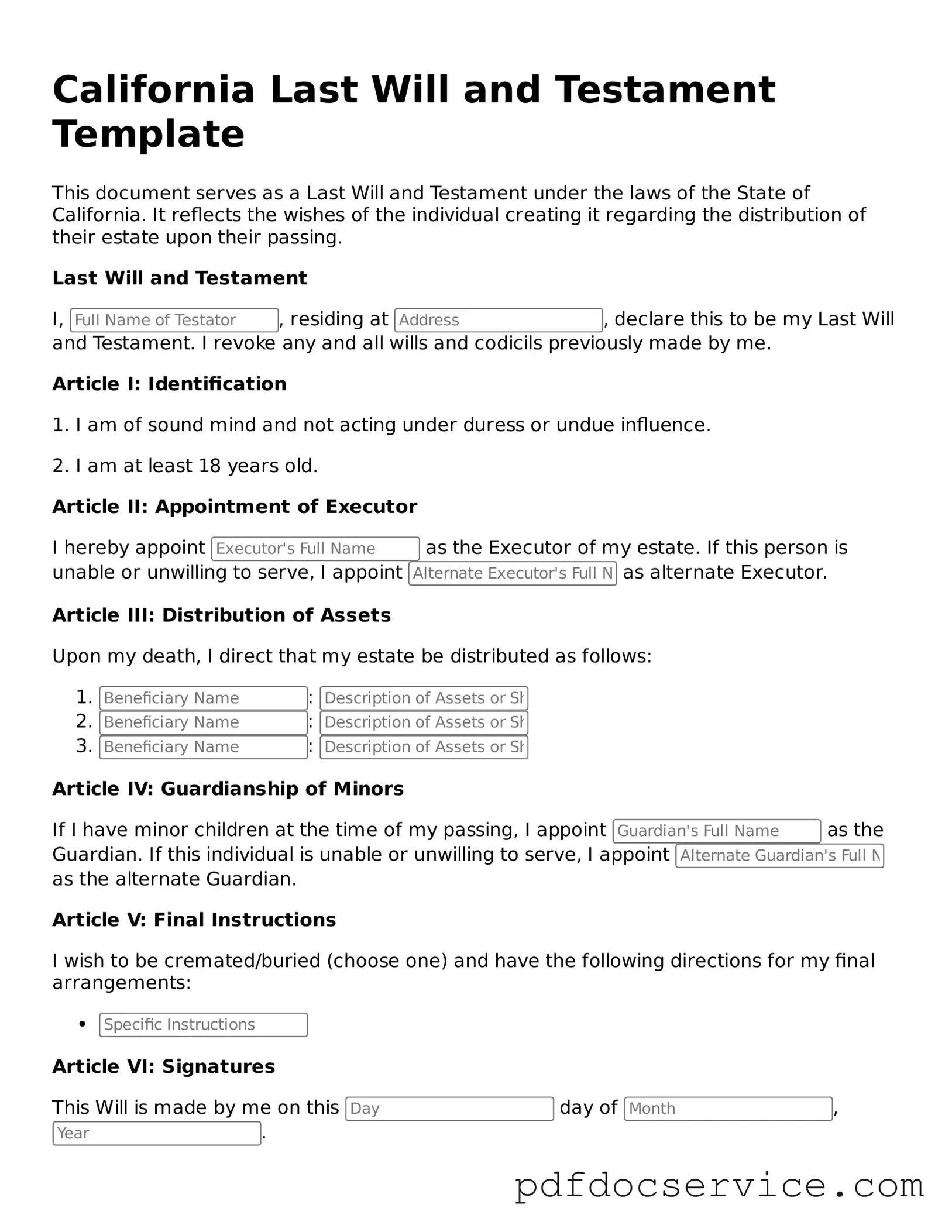What is a Last Will and Testament in California?
A Last Will and Testament is a legal document that outlines how a person's assets and affairs should be handled after their death. In California, this document allows individuals to specify who will inherit their property, name guardians for minor children, and appoint an executor to manage the estate. It ensures that your wishes are respected and provides clarity to your loved ones during a difficult time.
Who can create a Last Will and Testament in California?
In California, any person who is at least 18 years old and of sound mind can create a Last Will and Testament. This means you should be able to understand the nature of your actions and the consequences of your decisions. There are no specific educational or legal qualifications required to draft a will.
What are the requirements for a valid will in California?
For a will to be considered valid in California, it must meet several criteria:
-
The document must be in writing.
-
The person making the will (the testator) must sign it or have someone else sign it in their presence and at their request.
-
The will must be witnessed by at least two individuals who are present at the same time and who are not beneficiaries of the will.
Can I change or revoke my will?
Yes, you can change or revoke your will at any time while you are still alive. To make changes, you can either create a new will that explicitly revokes the previous one or add an amendment, known as a codicil, to your existing will. Just remember that any changes should follow the same legal requirements to ensure they are valid.
What happens if I die without a will in California?
If you pass away without a will, your estate will be distributed according to California's intestacy laws. This means that the state will determine how your assets are divided among your relatives. Generally, this can lead to outcomes that may not align with your wishes, so it's advisable to have a will in place to ensure your preferences are honored.
Can I write my own will in California?
Yes, you can write your own will in California. However, it is crucial to ensure that it meets all legal requirements to be valid. While many people choose to use templates or online services, consulting with a legal professional can help ensure that your will accurately reflects your wishes and complies with state laws.
How do I ensure my will is properly executed?
To ensure your will is properly executed, follow these steps:
-
Draft your will according to California law.
-
Sign your will in the presence of two witnesses.
-
Have your witnesses sign the will, confirming they saw you sign it.
-
Store your will in a safe place and inform your executor of its location.
What is the role of an executor?
The executor is the person you designate in your will to manage your estate after your death. Their responsibilities include ensuring that your debts are paid, distributing your assets according to your wishes, and handling any necessary legal proceedings. Choosing a trustworthy and responsible executor is crucial, as they will play a significant role in carrying out your final wishes.
Is it necessary to have a lawyer to create a will in California?
While it is not legally required to have a lawyer to create a will in California, seeking legal advice can be beneficial. A lawyer can help you navigate complex situations, ensure that your will complies with state laws, and provide guidance on how to address specific concerns, such as tax implications or unique family dynamics. If your estate is straightforward, you may feel comfortable drafting your own will.

